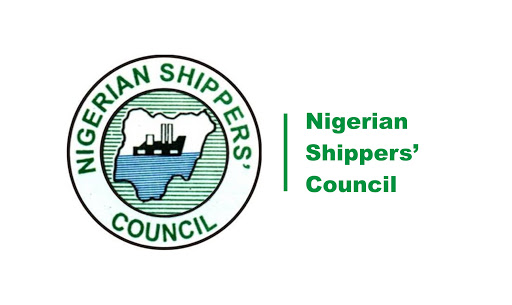The Nigerian Shippers’ Council (NSC) has launched a new results-oriented strategic framework focused on accountability, digital integration, and stakeholder responsiveness.
The Council’s Executive Secretary/CEO, Dr Pius Akutah, while unveiling the 2025–2029 plan at the Council’s Management System Retreat in Lagos yesterday, said the reforms reflect the Council’s obligation to match policy with action and ensure that infrastructure, efficiency, and regulatory outcomes drive sectoral growth.
Addressing the theme: “Achieving Strategic Intents Through Performance Lens,” Akutah stressed that the NSC must shift from bureaucratic processes to a results-driven institution, warning that all departments and staff must deliver measurable results or face sanctions.
“We are in a new era. The Nigerian Shippers’ Council can no longer afford to operate as a process-heavy, paper-driven bureaucracy. We must now define our success not by our activities, but by our outcomes. Not by intentions, but by results,” Akutah declared.
He added that President Bola Tinubu’s creation of the Federal Ministry of Marine and Blue Economy represents an “unambiguous statement” on the strategic value of the country’s ocean economy and the need for urgent transformation.
“Under Mr President’s direction, the Federal Government has made an unambiguous statement through the creation of the Federal Ministry of Marine and Blue Economy — entrusted with transforming Nigeria’s vast ocean economy into a catalyst for diversification, growth, and sustainability,” Akutah said.
He also commended the Minister of Marine and Blue Economy, Adegboyega Oyetola, for his visionary leadership, affirming that his “steady guidance and tireless commitment have galvanised key institutions within the sector, including our own Council, to embrace innovation, reform, and measurable impact.”
According to Akutah, as part of efforts to institutionalise measurable outcomes, the Nigerian Shippers’ Council’s 2025–2029 Strategic Plan places performance at the core of its operations. He directed that all departments, especially Legal Services, Strategic Planning and Research, Regulatory Services, Consumer Affairs, Inland Transport Services, and the Zonal Coordinators, must align their workplans with the Federal Government’s Marine and Blue Economy policy, with quarterly reports submitted to his office and transmitted to the supervising Ministry for review.
Akutah expressed dissatisfaction with current cargo dwell times and vessel turnaround statistics at the ports, describing them as “unacceptable.” He directed the Regulatory Services and ICT units to collaborate with terminal operators and the Nigeria Customs Service to develop a real-time “performance dashboard” to track vessel and cargo processing metrics — a tool he said would now form part of the Council’s monthly performance review.
He said as part of a digital transformation, the NSC has set a December 2025 deadline for full deployment and compliance with its Enterprise Content Management (ECM) system.
“By the end of Q3 2025, all internal memos, approvals, correspondences, and record-keeping must migrate to the ECM platform. Any department that fails to comply will face administrative sanctions,” he said.
Akutah also announced the full implementation of the Federal Government’s Performance Management System within the Council, stating: “Each staff member, from the highest to the most junior, must be assessed against a clearly defined set of Key Performance Indicators (KPIs).”
He directed the Human Resource Management and Strategic Planning and Research departments to finalise and implement individual performance contracts aligned with departmental scorecards. Henceforth, he indicated annual promotions, postings, and recognitions will be tied directly to staff and departmental performance, marking a cultural shift within the organisation.
On infrastructure, Akutah said the Council would move beyond paperwork to real execution on key projects such as the Jos Inland Dry Port, Kano Dala IDP, Gateway IDP in Ogun, Potiskum Vehicle Transit Area, and various Border Information Centres. The Inland Transport Services Department, PPP Unit, and Zonal Coordinators have been tasked with submitting fortnightly progress reports, which the ES pledged to monitor personally.
He also underlined the importance of stakeholder trust, warning that any regulator that is not responsive to its stakeholders risks losing legitimacy. To address this, Akutah directed the Public Relations Unit, Consumer Affairs Department, and Strategic Planning Department to institutionalise quarterly stakeholder forums, release regulatory newsletters, and create a formal complaint-resolution tracker.
While reaffirming his commitment to human capital development, Akutah said the Council will institutionalise a structured onboarding process for new staff within 30 days of employment and launch a Leadership and Innovation Development Series for senior officers from Q3 2025.
“We must now move from good intentions to disciplined execution. From this retreat, I expect that every Director, Deputy Director, and Unit Head will return with a clear action plan, a revised mindset, and a renewed sense of urgency,” Akutah stressed.
He further assured staff that his office would provide the necessary tools and support but emphasised that compliance, reporting, and visible transformation were now non-negotiable, noting: “As I have often said: performance is not an option. It is the new culture.”
Akutah expressed gratitude to Oyetola for his support and acknowledged Tinubu’s courage in entrusting the maritime industry to “purposeful and reform-minded leadership.”
“To the staff and leadership of the Nigerian Shippers’ Council: the future is ours to shape. Let us match our strategy with action, our duty with discipline, and our mandate with measurable progress. Let this retreat be remembered not just as an event — but as a turning point,” he stated.
Earlier, Director of Strategic Planning and Research, Rotimi Anifowose, described the retreat as a defining moment for institutional discipline and strategic focus. He said the validation of the Council’s draft strategy and signing of the performance bond between the Executive Secretary and Heads of Departments symbolise a new era of accountability.
“This is not merely a ceremonial exercise; it is a bold statement of leadership accountability and collective responsibility. The performance bond enhances institutional discipline, promotes transparency, and underscores a culture of results,” Anifowose stated.
He commended Akutah’s leadership and urged staff to give candid feedback and remain committed to innovation and excellence, stressing, “Together, let us move forward with clarity, unity, and purpose.”
Anifowose added that the retreat marks a pivotal shift in how the NSC will drive port efficiency, trade logistics, and stakeholder confidence across the country’s maritime ecosystem.
The Nation




